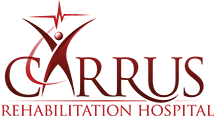
Living with Multiple Sclerosis (MS) can be challenging, but effective rehabilitation techniques can make a significant difference.
Let us explore how MS impacts daily life and discuss valuable rehab methods to help you manage symptoms and improve your quality of life.
Understanding Multiple Sclerosis
Multiple sclerosis is a chronic illness that affects the brain and spinal cord (central nervous system). It damages the myelin cells, a lipid-rich material that surrounds the nerves. This damage interrupts the signals sent by the nerves to the rest of the body to perform functions like movement, vision, and sensation.
There are several types of MS, but the most common type is relapsing-remitting multiple sclerosis (RRMS). According to reports, this type affects an estimated 85% of people diagnosed with MS. It typically causes flare-ups of symptoms and periods of remission when symptoms stabilize or disappear.
Multiple Sclerosis Symptoms
MS is an unpredictable condition, and symptoms can vary widely from person to person. Some people may be only mildly affected, while others may lose the ability to speak, walk, write, and see clearly.
In the early stages, signs and symptoms of MS may include vision changes, muscle weakness, and numbness, which usually affects one side of the face or body or below the waist. As the disease progresses, common symptoms of MS include:
- Fatigue
- Coordination and balance issues
- Problems with cognitive function, such as memory, concentration, and judgment
- Muscle weakness, stiffness, and spasms
- Clumsiness
- Dizziness
- Mood changes
- Speech problems
- Issues with bladder regulation
- Changes in sexual function
Symptoms may fluctuate in severity from one day to the next, making everyday activities difficult. In most cases, individuals have a few symptoms but typically do not experience all of them at once.
Rehabilitation plays a crucial role in managing MS symptoms. It helps maintain mobility and strength. By incorporating various therapies, patients can better cope with the physical and emotional aspects of MS.
Types of Rehabilitation for MS Patients
Rehab varies depending on symptoms and how severe they are. It can help you in a variety of ways, including regaining functions that are important for daily living and improving independence.
Physical Therapy
Physical therapy focuses on exercises to improve strength, balance, and mobility. It can increase endurance and control, help reduce muscle stiffness, and prevent muscle deconditioning. Regular sessions with a physical therapist can significantly enhance your physical abilities and overall well-being. A personalized exercise program can be developed to meet your specific needs.
Occupational Therapy
Occupational therapy aims to make daily activities easier. Therapists provide strategies to adapt tasks and environments, ensuring patients can perform essential functions independently and safely. This may include using assistive devices, improving fine motor skills, or modifying home and workspaces to allow you to move about as easily as possible.
Speech Therapy
Speech therapy addresses speech and swallowing difficulties. Therapists offer exercises and techniques to improve communication and swallowing function. They can teach feeding and swallowing practices and help you speak more easily if you experience weakness or a lack of coordination in the face and tongue muscles. Speech therapy can greatly enhance social interactions and nutritional intake.
Creating a Personalized Rehab Plan
Let us explore how a personalized rehab plan can benefit MS patients.
Importance of Individualized Care
Every MS patient is unique, requiring personalized rehabilitation plans. Individualized care ensures your specific needs and goals are met. Tailored therapy programs can address your particular symptoms and challenges, leading to better outcomes.
Working with Healthcare Professionals
Collaborate with healthcare professionals to develop your rehab plan. Communicate openly about your symptoms, goals, and preferences. Your care team will design a program that fits your lifestyle and maximizes your potential for improvement.
Tips for Incorporating Rehabilitation into Daily Life
Here are some tips on how to incorporate rehabilitation into your daily life.
Making Exercise and Therapy a Routine
Consistency is key to effective rehabilitation. Make exercise and therapy a regular part of your daily routine. Set aside specific times for your sessions and stick to them. Steady and consistent effort will produce the best results.
Finding Motivation and Support
Staying motivated can be challenging, but it is essential for success. Seek support from family, friends, and fellow MS patients. Participate in support groups or online communities to share experiences and encouragement.
Rehabilitation is vital for managing MS and improving your quality of life. By understanding your condition and incorporating effective rehab techniques, you can take control of your health. Explore and commit to a rehabilitation plan that works for you.
Multiple Sclerosis Treatment Near Me in Sherman, TX
At Carrus Health Rehabilitation Hospital, we provide comprehensive care for MS patients. Our team of board-certified physicians, nurses, and therapists offers around-the-clock support. We focus on a wide range of services, including physical, occupational, and speech therapy, to address all aspects of MS.
Our state-of-the-art facilities in Sherman, TX, include advanced equipment and technology. We strive to create a safe and encouraging environment for our patients, helping them return to their normal lives or adjust to new ones.
To learn more about our services and how we can assist you on your path to wellness, reach out to us at (903) 870-2600. We look forward to serving you!

